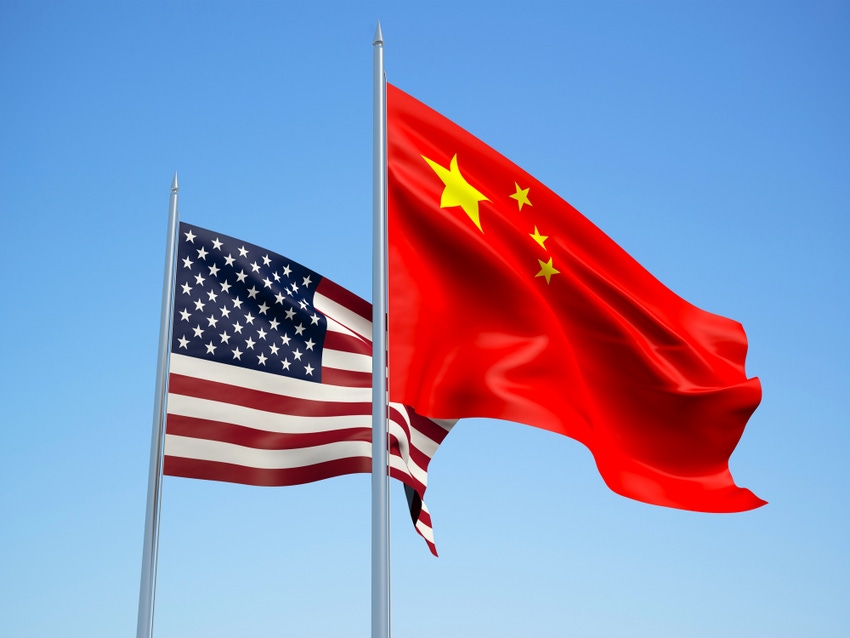
by Saleha Mohsin and Andrew Mayeda
President Donald Trump’s top economic advisers are returning home from Beijing with little more than glaring proof of how far apart the U.S. and China are on trade issues.
A U.S. delegation led by Treasury Secretary Steven Mnuchin wrapped up two days of negotiations with Chinese economic officials on Friday with little more than an agreement to keep talking. No time or place for further discussions was announced, with Trump’s threat to impose tariffs on as much as $150 billion in Chinese goods still looming.
The two sides appear to be at loggerheads, with both making a long list of demands the other won’t meet, analysts say. Trump wants China to cut its annual trade surplus with the U.S. by at least $200 billion by the end of 2020 and not retaliate against U.S. tariffs. China wants the U.S. to stop an investigation into the country’s acquisition of sensitive American technologies.
“The meetings this week are unlikely to lead to more than a very temporary cessation of hostilities,” said Eswar Prasad, a China expert at Cornell University. “We’re going to see the trade tensions if anything flares up even more because it has become clear that the U.S. wants a great deal from China and expects China to capitulate, and the Chinese are up for negotiation, not capitulation."
While a cure-all deal was always a long shot, the discord between the world’s two biggest economies means skittish global markets will continue to face ongoing trade tensions. The immediate question is whether the U.S. saw enough progress to delay planned tariffs on between $50 billion to $150 billion of Chinese imports.
Full Respect
The president hinted his administration will take action.
“My people are coming back right now from China,” Trump said Friday in Washington. “We will be doing something one way or the other with respect to what’s happening in China. Let me say this: I have great respect for President Xi, that’s why we’re being so nice, and we have a great relationship, but we have to bring fairness into trade between the U.S. and China, and we’ll do it."
Investors will probably conclude that “it’s harder to get a deal than many market participants might have thought a week or a month ago,” Kevin Warsh, a former Federal Reserve governor, said on Bloomberg TV on Friday.
There’s a risk of a fight between the U.S. and China “ending up with a broader fight in the G-20, and that could have real effects on global supply chains, asset prices and the global economy,” Warsh said.
Experts had expressed doubts about the ability of Trump’s team to make a breakthrough, given the different policy views within the large U.S. delegation.
Differing Views
Mnuchin’s approach is seen as more conciliatory than White House trade adviser Peter Navarro, who is known as a hawk on Chinese trade policies and co-authored the book “Death by China” about the perilous rise of the Asian economy.
The visit was Mnuchin’s first as Treasury chief. Commerce Secretary Wilbur Ross, U.S. Trade Representative Robert Lighthizer and White House economic adviser Larry Kudlow also joined the trip. The large group deviated from Chinese economic adviser Liu He’s earlier request that the U.S. designate a point person to manage the relationship.
“It’s a continuation of a happenstance strategy around foreign affairs but particularly trade, and I don’t think it’s going to change in the near term,” said Kim Wallace, a managing director at Eurasia Group and a former U.S. Treasury official during the Obama administration.
Chinese Scapegoat
China’s official Xinhua News Agency reported Friday that both sides reached a consensus on some trade issues while acknowledging major disagreements on some matters. It said they would continue discussions, without providing specifics for when they would start again. Neither side briefed the media.
In an editorial, the official China Daily on Friday reiterated that President Xi Jinping’s government won’t back down from its agenda in the face of pressure from the U.S.
“Making China a scapegoat for the ills of the U.S. economy may appease some uninformed voters, but it would hardly reduce the trade deficit,” according to the editorial. “The developments over the past months show China will not compromise on its core interests no matter how desperately the U.S. tries.”
Chinese officials tend to approach changes to economic policy “very incrementally,” said Nathan Sheets, chief economist for PGIM Fixed Income, who served as Treasury undersecretary for international affairs in the Obama administration and until 2017. “It boils down to whether President Xi is willing to use political capital in this way, but this doesn’t seem to be the way he’s moving.”
--With assistance from Toluse Olorunnipa, Randall Woods and Michael McKee.
To contact the reporters on this story: Saleha Mohsin in Washington at [email protected]; Andrew Mayeda in Washington at [email protected]
To contact the editors responsible for this story: Alex Wayne at [email protected];
Brendan Murray at [email protected]
Sarah McGregor, Randall Woods
© 2018 Bloomberg L.P
About the Author(s)
You May Also Like




